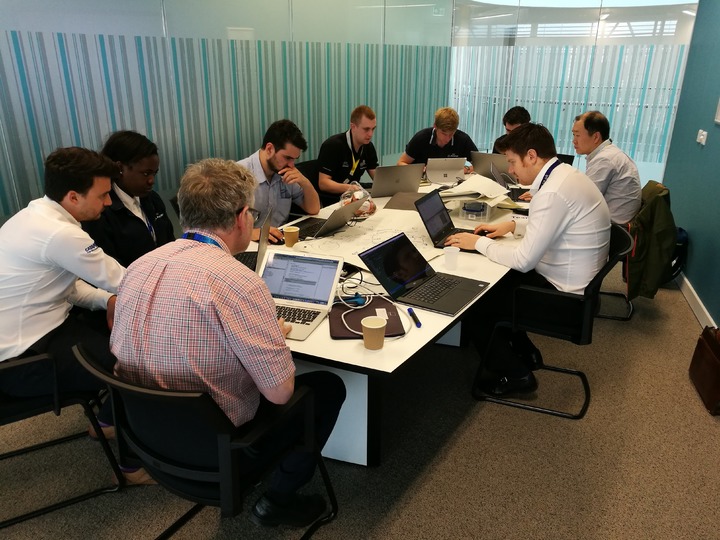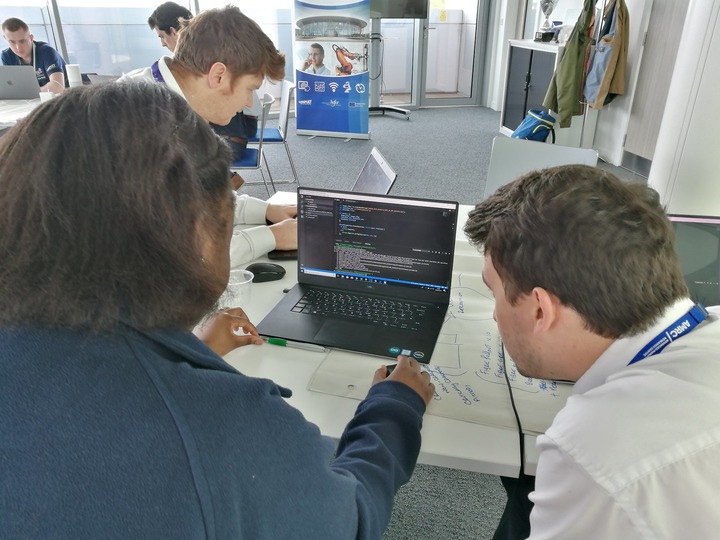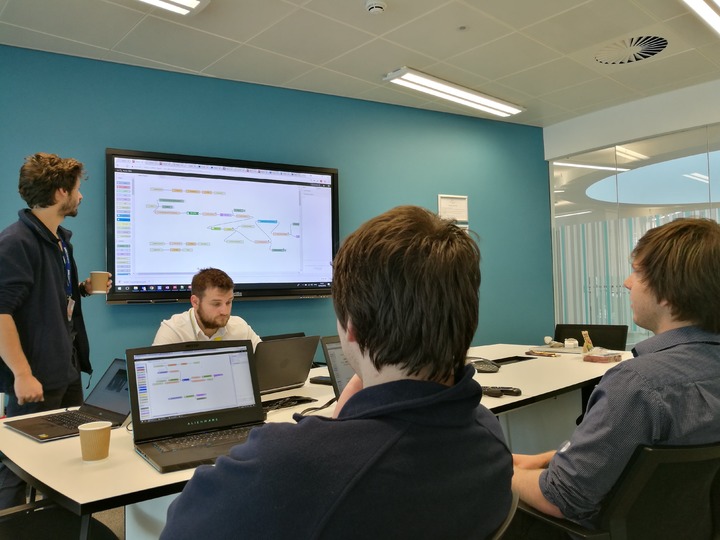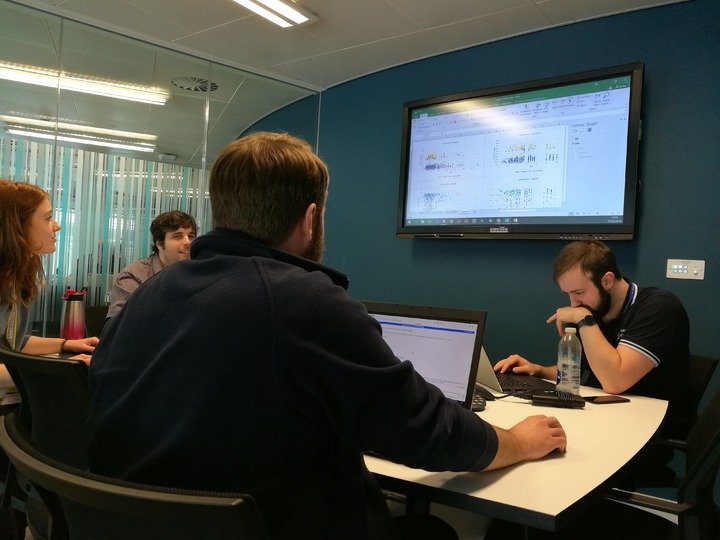Brain-straining IBM Watson ‘hackathon’ workshop generates AI-powered manufacturing solutions
16 May 2018The University of Sheffield’s Advanced Manufacturing Research Centre (AMRC) hosted a hands-on AI and machine learning workshop using IBM Watson as part of its drive to lead the way on AI-powered manufacturing.
The IBM Watson Cloud services have been hailed a game changer with its artificial intelligence and machine learning capabilities helping businesses to improve production, efficiency and reduce costs.
As part of its AI strategy, the AMRC hosted a brain-straining ‘hackathon’ workshop to showcase IBM Watson to staff from its Factory 2050, Machining, Composites, Design and Prototyping groups alogn with the Nuclear AMRC. They were joined by representatives from other Catapult Centres including the Manufacturing Technology Centre, Warwick Manufacturing Group, Strathclyde Advanced Forming Research Centre, the National Composites Centre and the Centre for Modelling and Simulation in Bristol.
The focus of the workshop was to understand and get hands-on with the IBM Watson technology and then put this in to practice by applying it to real-life industry problems. Working in small groups over two days, the teams identified a challenge and used different cognitive computing services around image, video, sound and data analytics to solve those challenges with machine learning and artificial intelligence through IBM Watson.
These challenges ranged from simplifying the process for information retrieval for MRO (maintenance, repair and operating supplies) and improving security systems with facial recognition technology to using acoustic signals to detect machine failures and visual recognition AI algorithms to find defects in drilled composite holes.
The groups presented their findings to each other and a small panel of judges including Tanya Fish from Pimoroni, George Williams from IBM and Jonathan Bray, Deputy Head of Digital at the AMRC.
The winning team – made up of Kiran Krishnamurthy (CFMS), Rikki Coles (AMRC - IMG), Craig Hamer (Nuclear AMRC) and Dave King (AMRC - DPG) - set itself the challenge of using IBM Watson’s AI capabilities to predict the type of coffee being dispensed by a coffee vending machine based on the sounds generated during coffee preparation. The idea was this could then be developed and used in industry for predictive maintenance and condition based monitoring for machines, or other insights using a simple microphone/smartphone as a diagnosis tool.
To do this the team created a ‘BaristaBot’ model application. This involved recording sounds from the coffee machine as it dispensed different drinks, converting the audio data into colour spectrograms and then turning those into images. These images were then fed into IBM Watson using vision recognition software to allow the bot to be trained to work out what the machine was doing based on the noises being omitted - using AI mapping to match sound to the types of coffee ‘images’ stored so it could predict what was going to be dispensed.
Rikki Coles, AI project engineer for the Integrated Manufacturing Group at Factory 2050, said the potential of the application is that it offers up a smarter and more responsive way of carrying out machine maintenance with the ability to predict when maintenance is due rather than carrying it out on a fixed schedule.
Dr Kevin Kerrigan, Composites Machining Group Lead at the AMRC, was part of a team using IBM Watson to identify defect composite drilled holes by teaching it what a healthy drilled hole looked like compared with an obviously defected or delaminated hole – meaning it would be possible to identify whether a drilled hole is healthy or defective instantaneously.
Kevin said AI and machine learning has the power to transform how research is carried out, dramatically bringing down data analysis times.
“The data we used is from a study in 2015 and took about three months to analyse. If we could get that done in three minutes using IBM Watson that would be astounding,” he said. “It changes the way we do research.”
The workshop was held at Factory 2050 and was convened as a result of a special partnership with IBM which has seen the technology giant gift the AMRC an entrepreneur licence for IBM Cloud services, allowing the AMRC free use of most services available on the IBM Cloud.
Aiden Lockwood, Technical Fellow in Manufacturing Informatics for the Integrated Manufacturing Group at Factory 2050, said the event is a good example of the AMRC’s commitment to leading the way on harnessing the powers of AI and machine learning and raising awareness that these capabilities are available.
Aiden said: “We have convened the training and those who have attended – from here and across the other Catapult Centres - worked in small teams, with a very diverse set of skills in each group.
“It gave them the opportunity to find out what is possible and I am hoping they will have taken away some new skills, experience and some understanding of what’s possible with AI and machine learning and the ability to develop ideas further to create production-ready applications that can be deployed in the field to address real manufacturing challenges.”




